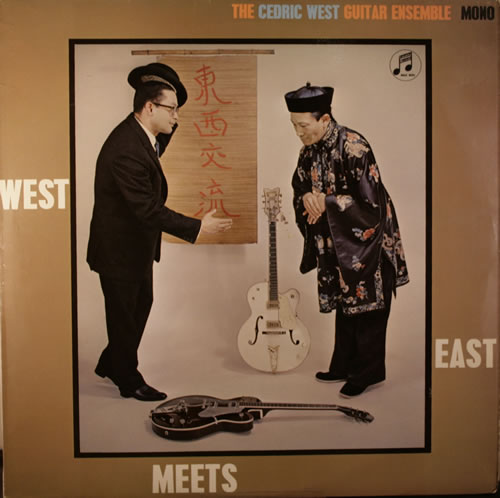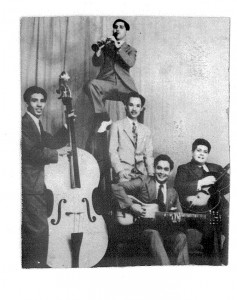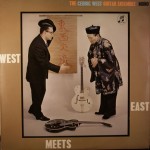In 1941, as World War Two raged, the Japanese advance on India’s borders had an unforeseen effect on the country’s jazz scene. Among the hundreds of thousands of people who trekked out of Burma for India ahead of the Japanese vanguard were several Burmese jazz musicians. The most prominent were members of one of Rangoon’s hottest bands, the Jive Boys, which featured Reuben Solomon on clarinet, Paul Feraz on bass, and three guitarists: Ike Issacs, Reuben’s brother Solly and Cedric West. They arrived in Calcutta in March 1942 and were immediately offered positions in the city’s most prominent bands. (See Amitav Ghosh’s note on the great trek here.)
After the death of the pianist Teddy Weatherford (whose ghost I wrote about last week), many members of his band joined the Jive Boys, which was now being headed by Reuben Solomon. The Jive Boys made a clutch of sides in Calcutta, including these tracks here, from the Marco Pacci archive.
Reuben Solomon would later emigrate to Australia. Two of the Jive Boys went on to make very respectable careers for themselves in the UK. Ike Issacs, featured in the clip above (from a documentary by Spiros Mavrangelos) moved to the UK in 1946 to study chemistry, but made his career in music. He would become the dominant guitarist on the English jazz scene for three decades until the 1970s, even performing a two-year world tour with the violin wizard Stephane Grapelli.
Cedric West emigrated to the UK in September, 1947, along with his wife Nesta, who had been a vocalist with the Jive Boys. In England, West played with a variety of outfits, including as a sessions man for Nelson Riddle and Quincy Jones. He even cut two albums: West Meets East (see review from Gramaphone magazine) and Bach Goes West. This video below features him with guitar legend Joe Pass.




